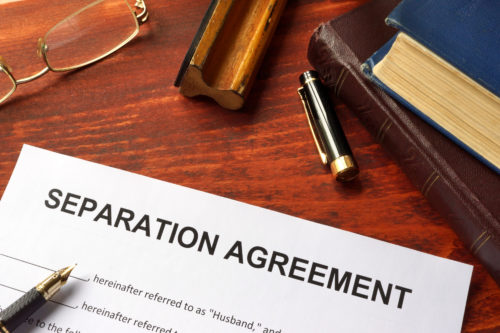
When it comes to legal separation in Colorado, there are a few things that you need to know. Both legal separation and divorce will end your marriage, but they have different legal implications. If you are considering separating from your spouse, it is important to understand the differences between legal separation and divorce. There are many key differences between legal separation and divorce in Colorado.
What is Legal Separation?
Legal Separation in Colorado can accomplish anything and everything a divorce can, except legally divorcing the parties. Parties involved will go through a formal process, much like the divorce process, in which they will receive a final decree at the end. The decree will address things such as custody if children are involved, division of property, maintenance, and other legal issues. The one difference between a legal separation vs a divorce in Colorado, is the fact that the parties will still legally remain married.
Since both parties involved will still be legally married, neither will be able to remarry unless they convert the legal separation into a divorce. This conversion can happen at any time after 6 months have passed since the decree was issued. Once the 6 months have passed, parties can file to convert the Decree of Legal Separation into a Decree of Dissolution of Marriage (divorce).
Similarly to a divorce, you and your spouse can file a petition for legal separation as co-petitioners. If one party does not agree to your terms, you can also file for a legal separation on your own. To file, one party must have lived in Colorado for at least 90 days. If there are children involved, the children must have lived in Colorado for 6 months or more.
Why Choose a Legal Separation over a Divorce?
Parties may choose a legal separation over divorce if certain circumstances apply to them. For example, parties may choose a legal separation in Colorado for tax or health insurance purposes. Parties looking to keep their spouse’s health insurance may choose a legal separation over a divorce.
Religion is another circumstance where parties may choose a legal separation over a divorce. In certain religions, divorce may go against the religion’s view. Legal separation can help the parties achieve everything a traditional divorce does, without going against their views.
Tax purposes may also be a reason parties choose a legal separation over a divorce. Filing taxes as legally separated means parties would file as “single” or “head of household” depending on your situation. Parties would no longer file jointly.
Are you worried your legal separation could lead to divorce? It’s better to be safe than sorry, get your pick of local law firms by reaching out first.
Choosing the Best Option for Your Situation
When choosing a legal separation vs. divorce in Colorado, it is very important to choose the right family law attorney for your case and situation. It is beneficial to to have a consultation with the attorney first to make sure they are a good match. You can learn more about the process and the differences between a legal separation and a divorce and what the best option is for you and your individual circumstances.
Legal Separation will go in-depth on parental responsibilities and parenting time just like a divorce would. It will address the division of marital property, assets, and debt. Some parties may already know how they want to divide everything on their own but others may need an attorney to help. When in doubt, contact an attorney to look at your options.
Get a Legal Separation Attorney in Denver
At Colorado Legal Group, our attorneys’ focus is to make sure you are well-kept in the loop with everything about your case and to create the best scenario possible for you and your family.
If you have any questions or would like more information about legal separation in Colorado, submit a free case evaluation or give us a call at 720.594.7360 to speak to an experienced attorney.
